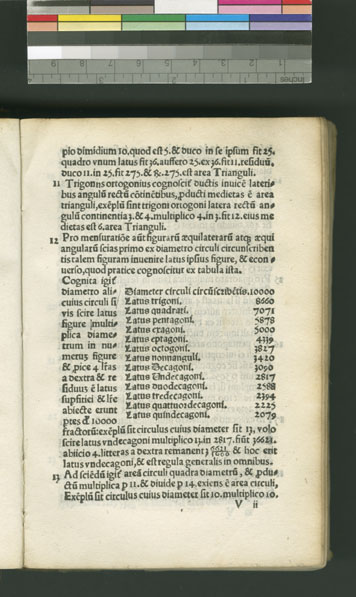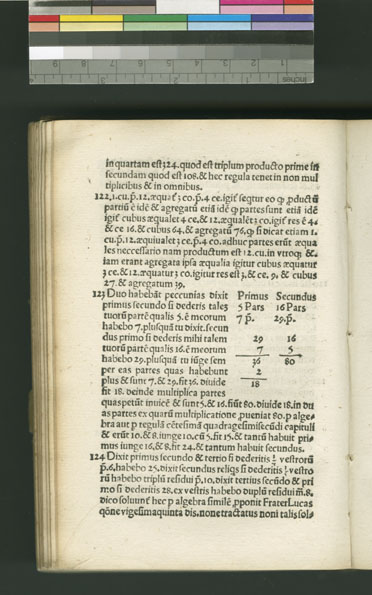- About MAA
- Membership
- MAA Publications
- Periodicals
- Blogs
- MAA Book Series
- MAA Press (an imprint of the AMS)
- MAA Notes
- MAA Reviews
- Mathematical Communication
- Information for Libraries
- Author Resources
- Advertise with MAA
- Meetings
- Competitions
- Programs
- Communities
- MAA Sections
- SIGMAA
- MAA Connect
- Students
- MAA Awards
- Awards Booklets
- Writing Awards
- Teaching Awards
- Service Awards
- Research Awards
- Lecture Awards
- Putnam Competition Individual and Team Winners
- D. E. Shaw Group AMC 8 Awards & Certificates
- Maryam Mirzakhani AMC 10 A Awards & Certificates
- Two Sigma AMC 10 B Awards & Certificates
- Jane Street AMC 12 A Awards & Certificates
- Akamai AMC 12 B Awards & Certificates
- High School Teachers
- News
You are here
Mathematical Treasures - Gerolamo Cardano's Practica Arithmetice

This is the title page of the Practica Arithmetice of Gerolamo Cardano (1501-1576), published in 1539. It was a comprehensive work on arithmetical questions, with numerous practical problems and even some elementary algebra and geometry.

In paragraph 12, Cardano details the side length of regular polygons inscribed in a circle of diameter 10000. Thus the side of an equilateral triangle is 8860, of a square is 7071, and of a hexagon is 5000.

In paragraph 63, Cardano solves a classical problem coming from Leonardo of Pisa: To find a number that when divided by each of 2, 3, 4, 5, and 6 falls short by 1 of exactly dividing, but is divisible by 7. The answer is 119.

In paragraph 97, Cardano solves another problem coming from Leonardo: If of four men, the first, second, and third together have 34 coins; the first, second, and fourth have 73; the first, third, and fourth have 72; and the second, third, and fourth have 88; then how many coins does each have? Cardano simply adds the four numbers together, noting that this sum, 267, is equal to three times the total. Therefore, the total number of coins is 89 and it is straightforward to calculate the number held by each man.

In paragraph 122, Cardano solves a cubic equation without using any formula.
Frank J. Swetz and Victor J. Katz, "Mathematical Treasures - Gerolamo Cardano's Practica Arithmetice," Convergence (January 2011)




